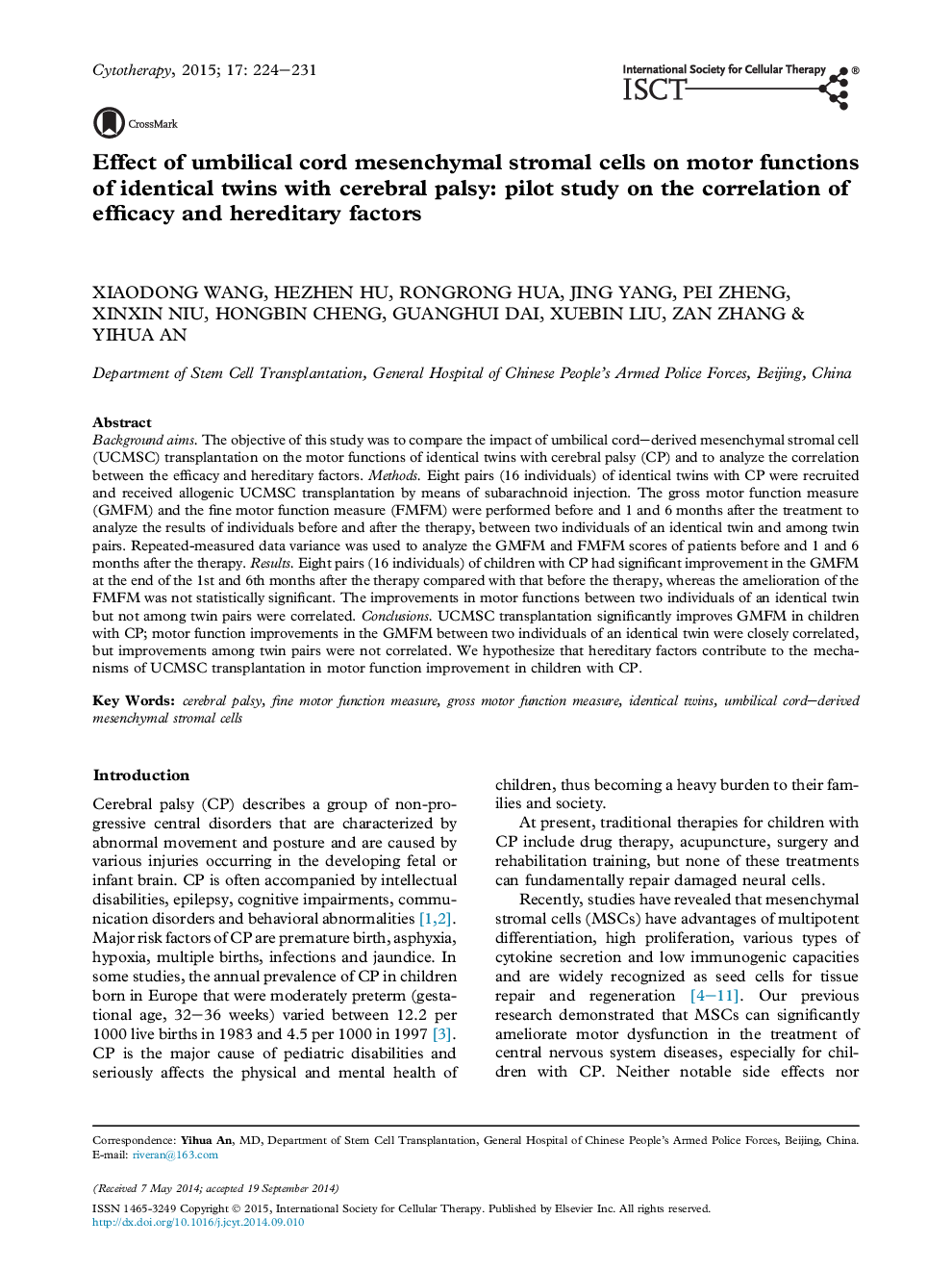| Article ID | Journal | Published Year | Pages | File Type |
|---|---|---|---|---|
| 2171829 | Cytotherapy | 2015 | 8 Pages |
Background aimsThe objective of this study was to compare the impact of umbilical cord–derived mesenchymal stromal cell (UCMSC) transplantation on the motor functions of identical twins with cerebral palsy (CP) and to analyze the correlation between the efficacy and hereditary factors.MethodsEight pairs (16 individuals) of identical twins with CP were recruited and received allogenic UCMSC transplantation by means of subarachnoid injection. The gross motor function measure (GMFM) and the fine motor function measure (FMFM) were performed before and 1 and 6 months after the treatment to analyze the results of individuals before and after the therapy, between two individuals of an identical twin and among twin pairs. Repeated-measured data variance was used to analyze the GMFM and FMFM scores of patients before and 1 and 6 months after the therapy.ResultsEight pairs (16 individuals) of children with CP had significant improvement in the GMFM at the end of the 1st and 6th months after the therapy compared with that before the therapy, whereas the amelioration of the FMFM was not statistically significant. The improvements in motor functions between two individuals of an identical twin but not among twin pairs were correlated.ConclusionsUCMSC transplantation significantly improves GMFM in children with CP; motor function improvements in the GMFM between two individuals of an identical twin were closely correlated, but improvements among twin pairs were not correlated. We hypothesize that hereditary factors contribute to the mechanisms of UCMSC transplantation in motor function improvement in children with CP.
